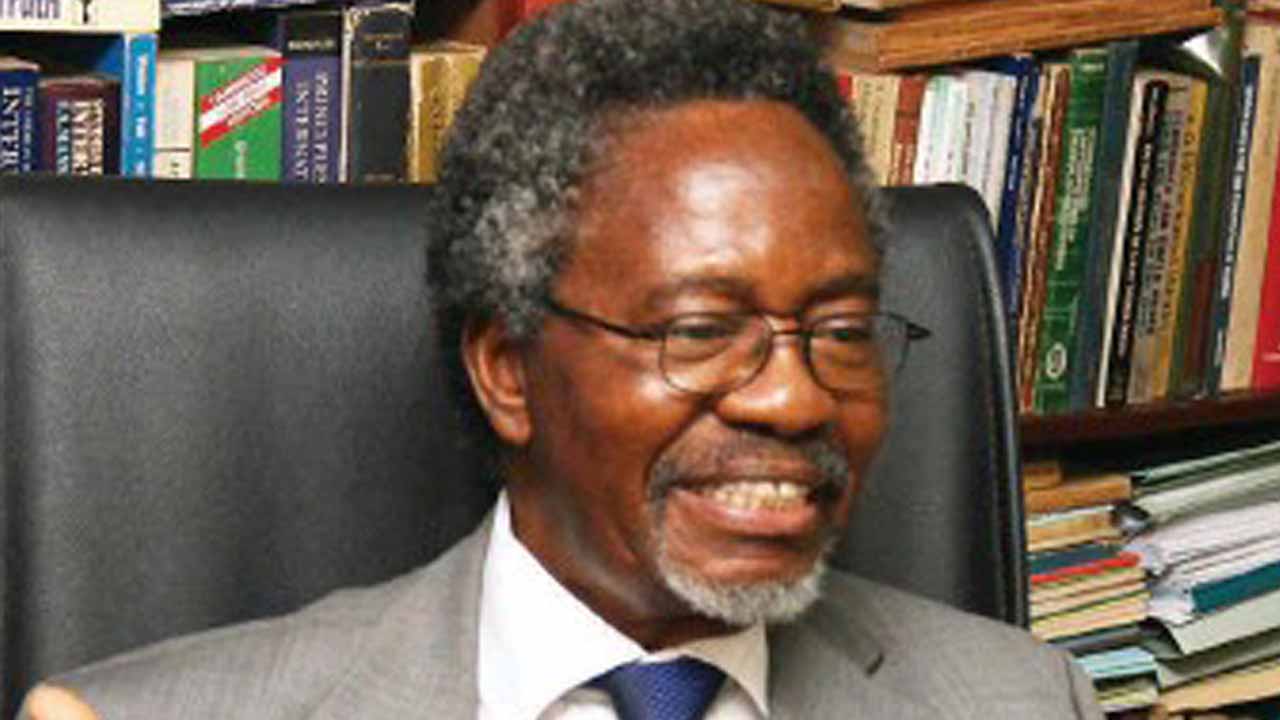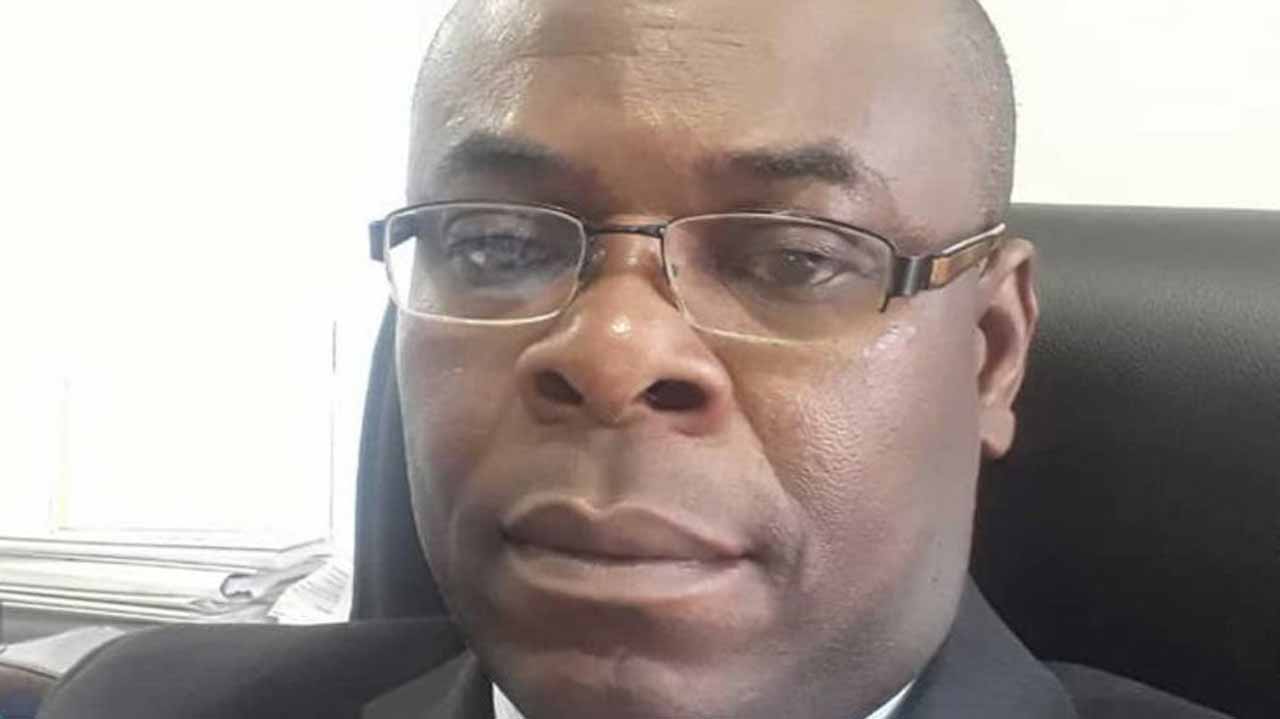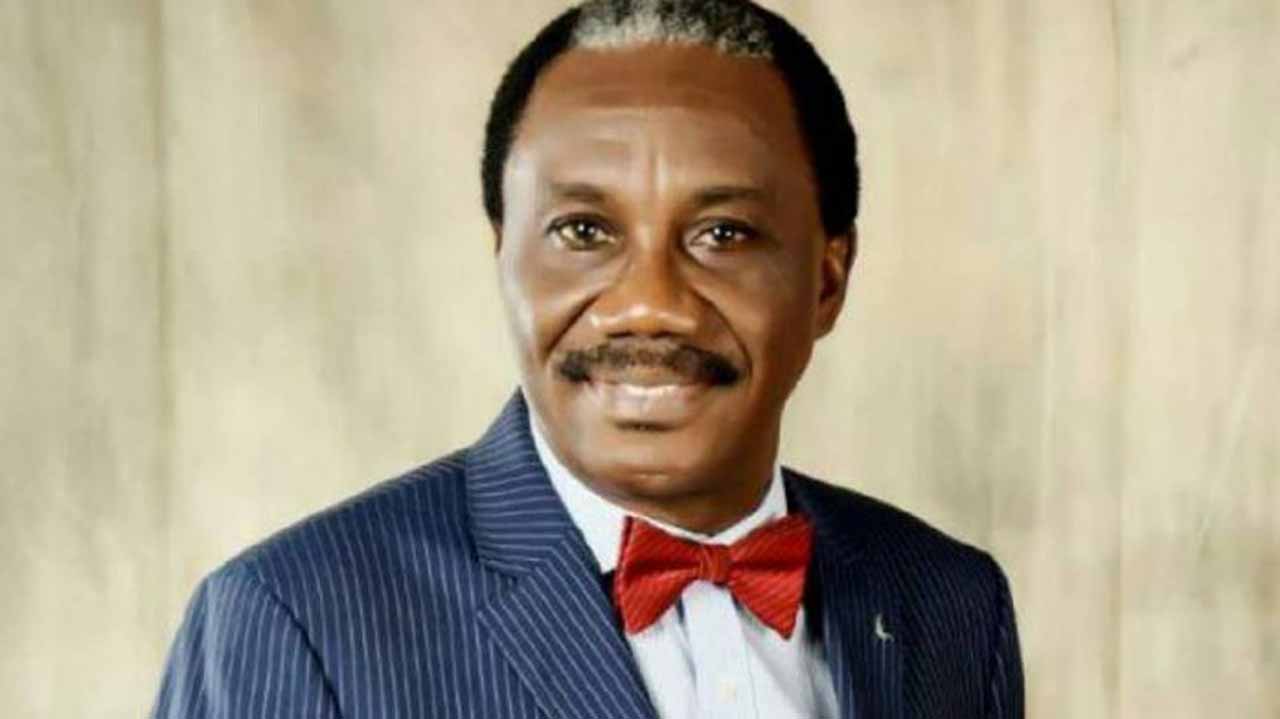 |
| Prof. Oyebode |
Emerging as the winner of an election into political office is arguably the most lucrative enterprise in Nigeria today. The individual, who before an election finds it difficult to meet his basic needs, automatically gets transformed financially. The benefits are so huge that it makes the conduct of election in Nigeria a herculean task. The result is that politicians, their supporters and agents throw everything into the system. They flagrantly violate the electoral laws and circumvent the process such that almost all elections end up in courts. As the supposed neutral arbiter, the courts are empowered by sections 239(1) and 285 of the 1999 Constitution (as amended) to determine electoral disputes. But recent decisions of the Supreme Court in validating and invalidating disputed elections with consequential orders have continued to stoke controversy. Assistant Editor, Law and Foreign Affairs, JOSEPH ONYEKWERE reports that the backlash and public outcry have raised the debate on whether the laws should be amended to stop the courts from “choosing candidates” for the electorate by just ordering for a rerun when cases of electoral malpractices and frauds are proven.
“Whenever decisions of one court are reviewed by another, a percentage of them are reversed. That reflects a difference in outlook normally found between personnel comprising different courts. However, reversal by a higher court is not proof that justice is thereby better done. There is no doubt that if there were a super-Supreme Court, a substantial proportion of our reversals of state courts would also be reversed. We are not final because we are infallible, but we are infallible only because we are final.”
The above quotation credited to a renowned American jurist,
Robert Jackson and part-cited by late Justice Chukwudifu Oputa (JSC) in Adegoke Motors Ltd Vs Dr. Babatunde Adesanya & other in 1989 aptly captures the view of many Nigerians on the fallibility of the decisions of the apex court in some matters.
It is inarguable that if the power of finality was not given to the apex court, by virtue of section 235 of the 1999 Constitution (as amended), many dissatisfied litigants would still want to continue on endless appeal. This situation is more pronounced with the current exchanges between the People’s Democratic Party (PDP) and the All Progressives Congress (APC) over the recent Surpeme Court judgment that sacked Hon. Emeka Ihedioha of the PDP in Imo State and ordered that Chief Hope Uzodinma of the APC, who came a distant fourth during the governorship election be returned elected. The apex court did this by adding votes, which the appellant claimed was rejected by the Independent National Electoral Commission (INEC) in 382 polling units across the state. In the end, the total number of votes became higher than the total number of accredited voters. The total number of votes cast now amount to 927,630 against the previous 739,485, while accredited voters for the poll remain 823,743. The difference between the total number of votes and accredited voters is 103,887, meaning that there are still unresolved irregularities after the final judgment. The PDP and some Nigerians too believe it is a miscarriage of justice and a decision taken without considering the interest of the electorate, while obviously, the APC and its supporters, who are the beneficiary, hail the decision.
 |
| Chief Ozekhome |
WHAT THE LAWS SAY
Section 140 subsections (1)(2) and (3) of the Electoral Act 2010 say: “Subject to subsection (2) of this section, if the Tribunal or the court as the case may be, determines that a candidate who was returned as elected was not validly elected on any ground, the Tribunal or the court shall nullify the election. (2) Where an election tribunal or court nullifies an election on the ground that the person who obtained the highest votes at the election was not qualified to contest the election, or that the election was marred by substantial irregularities or non-compliance with the provisions of this Act, the election Tribunal or the court shall not declare the person with the second highest votes or any other person as elected, but shall order fresh election. (3) If the Tribunal or the court determines that a candidate who was returned as elected was not validly elected on the ground that he did not score the majority of valid votes cast at the election, the election Tribunal or the court, as the case may be, shall declare as elected the candidate who scored the highest number of valid votes cast at the election and satisfied the requirements of the constitution and this Act.”
By virtue of subsection 3 of this section, a Tribunal or court is empowered to “choose candidates” for the electorate, where it discovered that the person returned elected was not validly elected by not scoring the majority of valid votes cast at an election.
While sections 285(1) and (2) of the 1999 constitution provided for election petition Tribunals for the National Assembly and governorship elections, presidential elections have no Tribunal. The court of appeal by the provisions of section 239(2) has original jurisdiction to determine whether any person has been validly elected into office of the president or vice president. All the appeals lie to the supreme court as of right.
Section 232(2) of the constitution says, “In addition to the jurisdiction conferred upon it by subsection (1) of this section, the supreme court shall have such original jurisdiction as may be conferred upon it by any Act of the National Assembly.” The implication of this provision is that the national assembly can further amend section 140 of the Electoral Act to the effect that election Tribunals and the courts can only order rerun in cases of proven irregularities in electoral dispute matters.
ARGUMENTS IN FAVOUR OF THIS REFORM
Professor of Comparative Constitutional Law at the University of Benin, Edoba Omoregie believe the ideal situation is that the courts should try to distance itself from cases which lack clear judicial parameters for coming to justice. Lawyers, he said regard such matters as falling within the “political question doctrine.”
“Election petitions are deeply political matters, and inevitably the judiciary will remain under intense pressure to deliver judgement one way or the other, irrespective of, or in spite of the merit of the matter. I am not thereby suggesting that this is what may have happened in the Imo decision. My point, quite simply, is that no amount of legislative framework or judicial decision will be satisfactory where politics is at play in matters of election disputes.
“What this means is that we should rather focus more on strengthening our electoral processes in such a way as to ensure that they pass the test of transparency and credibility as much as possible, such that it would be virtually unnecessary to seek judicial intervention in such matters,” he suggested.
According to him, the legislative framework should rather be focused on guaranteeing free, fair and credible elections, rather than enmeshing the judiciary in the process.
Similarly, Professor of International law and Jurisprudence, Akin Oyebode expressed the view that Nigeria has to reconsider the situation where the courts have to override decisions of the electorate.
His words: “Unelected judges however brilliant should not hijack the prerogative of voters. A Special Elections Tribunal can order a re-election and try and convict electoral marauders when cases of electoral malpractices are determined by the courts.”
 |
| Prof Edoba |
Lagos based lawyer, Mr. Tony Odiadi also agreed that a rerun ought to settle all electoral disputes. Were electoral matters become so contentious, he said, a court and in most cases, the Supreme Court should direct a rerun.
“In a rerun, the wish of the electorate is again brought to bear on the process. The Chibuike Amaechi’s judgement in 2008 that removed Celestine Omehia as governor of Rivers State was considered unsupportable by realist jurisprudence, that is, a man not on the ballot, but returned as duly elected.
“Thereafter, the Judiciary began to step back on that…the candidate must have been on the ballot as at the date of election. The recent judgment removing governor Ihedioha of Imo State and declaring Hope Uzodinma as duly elected raises the question of the role of the Supreme Court as an arbiter in electoral matters.
“Can the Court decide finally on who is a governor? Is the court needlessly drawn into political questions way above the possibilities of neutrality? This is the current dilemma. At the end of the collation of votes cast, the returning officer declared Ihedioha winner. Uzodinma came 4th but the Supreme Court has now ruled that 382 polling centres were not counted. How are people to assume that the other candidates had no votes in those polling centres? Some amendment of our laws and Constitution may need to be made to save the electoral process of this quagmire,” he suggested.
Another Lagos lawyer, Mr. Stephen Azubuike believes that it runs against the whole idea of democracy if candidates are chosen by ‘judicial dictatorship’ rather than by the popular votes of the electorates. “Any law to specifically discourage this is most welcomed. The courts must decline any invitation by politicians to be used as a tool to run against the wishes of the majority,” he admonished.
Also speaking, Ms. Lotanna Dim, a legal practitioner said: “I think it is disheartening to see the sacred power, which has been vested on the Supreme Court being abused and misused. It is a slap in the face of every Nigerian that justice and all that is stands for has become a facade in our country. Supreme Court justices have one job which is to uphold the law and promote justice as the last resort. To see such power misused is indeed hopeless.”
IN DEFENCE OF THE APEX COURT
 |
| Prof. Ojukwu SAN |
Former deputy director general of the Nigerian Law School, Prof. Ernest Ojukwu (SAN) said Nigerian litigation process is based on the claim of the parties. The function of the court, he said, is generally to determine a litigation within the ambit of the law and the claim of the parties.
“It is important to bring election disputes to an end as soon as it arises to avoid instability in governance. It is very expensive to conduct elections and further create instability by conducting re-elections without end. What we should rather be asking is for national leaders whether at party levels or general elections to insist that our elections be conducted fairly, honestly and credibly.
“If we start conducting credible elections and confidence is developed in the ability of the umpire to conduct fair and credible elections, people will stop approaching the courts to settle electoral disputes,” he said.
Mr. Sylvester Elema (SAN) in his own intervention stated that the Electoral Act already provides that any candidate who did not participate in all stages of an election cannot be declared the winner of an election.
“Where the candidate participated in the election, the law allows the court to do what the Supreme Court did. Amending the law to prevent the court from declaring a person who lost the election as winner may be counter productive,” he said.
Arguing further on this, Mr. Adekunle Oyesanya (SAN) insisted that the Supreme court did not foist a candidate on the people of Imo State in the present case. “What the court did was simply to hold consistently with the law that only the presiding officers at the polling units can cancel or reject votes because elections take place at the polling unit levels, not at the ward or local government levels or any other level.
“So, the Supreme court is simply saying that when Hope Uzodinma’s over 200,000 votes were cancelled or rejected at the polling unit level, that action was against the electoral law and was thus unlawful. So, the court simply restored the votes and Senator Uzodinma’s votes simply shot up and he scored the highest votes. The next legal and logical thing to do was to declare him as the winner of the election. It would have amounted to grave injustice against the Senator, his party and indeed the voters who voted for him to order a rerun election,” he stated.
He maintained that the Supreme court did not choose a candidate for the electorate. “And I don’t know of any case where they did so. Of course, the courts are not empowered by law to choose candidates for the electorate. Ordering a winning candidate to be sworn in is simply a consequential order as the law abhors a vacuum,” he said.
Toeing the same line of argument, Dr. Abiodun Layonu (SAN) said the supreme court cannot be said to be imposing candidates because the court primarily resolves with finality a legal dispute based on law, facts and evidence.
His words: “A rerun is ordered only when it’s not possible to find a clear winner. All over the world, it is the duty of the judiciary to put finality to a legal dispute. A rerun when not carefully or correctly ordered will in most instances inexorably lead to another round of expensive electioneering, time and litigation.”
In his own view, Lagos lawyer, Mr. Osita Enwe said it may be pointless campaigning for laws to be enacted that will prevent the Supreme Court from foisting candidates – public office holders – on the electorate. Principles of equity, he stressed still form part of our body of laws, and the Supreme Court has a duty to invoke and apply its principles in resolving any legal question before it.
He said: “The Supreme Court has the capacity to make laws and to further develop our body of laws. The Courts and its ministers should always be conscious of legal as well as socio-economic implications of its judgments. The peoples’ confidence in its institutions is important.”
For Dr. Paul Ananaba (SAN), such law stipulating mode of pronouncements by courts is partially in existence in Section 140 of the Electoral Act 2010 as amended. Cases, he said, should be decided on their peculiar facts. “We do not need a law that will gag the court,” he declared.
KNOCK FOR INEC
However, Chief Mike Ozekhome (SAN) blamed INEC for the problems. He said INEC has failed the nation such that “presidents and governors are now being packaged for the country and states” by the courts against the clear choice of the voters at the polls.
“If INEC got its acts right, the judiciary’s frequent interventions would have been greatly minimised. Today, INEC is neither independent, impartial, nor well-equipped to count the electorate’s votes and also allow such votes to count. That is the sorry state we are in today, especially since 2015,” he declared.
In this article:
